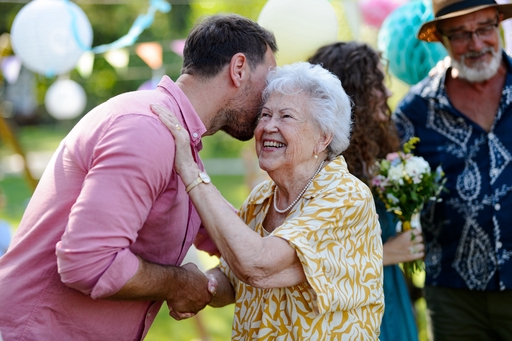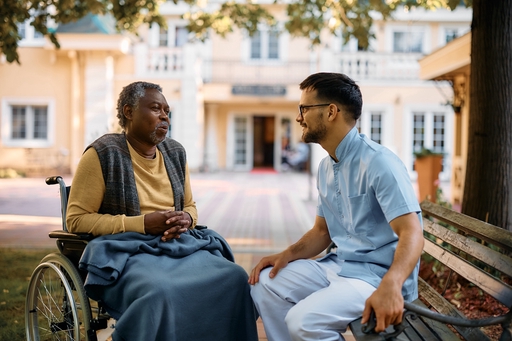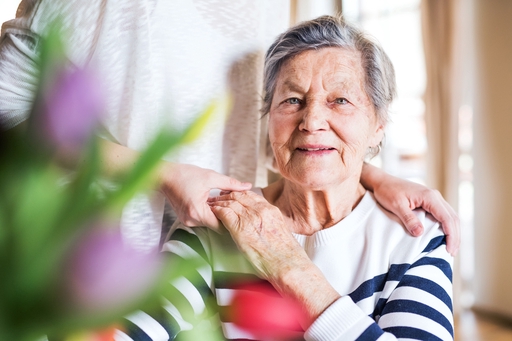Exceptional palliative care at home for over 60 years
Palliative and end of life care
Caring for a loved one in the final stages of life is a deeply personal and emotional journey. At Consultus Care and Nursing, we understand the unique challenges that come with providing palliative care. Our goal is to ensure that your loved one receives the highest standard of care, tailored to their needs, while allowing them to remain in the familiar and comforting environment of their own home. With our experienced carers and nurses by their side, your loved one can experience dignity, respect, and peace during this time.

What is palliative care?
Palliative care is a specialist form of care designed to provide relief from the symptoms, pain, and stress caused by a terminal illness focusing on improving the quality of life for both the person receiving care and their family. Palliative care addresses the physical, emotional, and spiritual needs of the individual, offering a holistic approach to care. This type of care is not limited to those who are at the end of life; it can also be beneficial for those managing chronic conditions, where the goal is to maintain comfort and quality of life.
Talk to us today
Give us a call to discuss your needs with one of our friendly, expert Care Advisors. They will guide you through your options to ensure you make the right choice for you and your family.
Conditions that can be supported by palliative care at home
Palliative care can be a versatile and comprehensive approach to managing a wide range of serious illnesses. It is not limited to any specific condition but is particularly beneficial for those experiencing complex symptoms, significant pain, or a decline in their overall quality of life.
Palliative care plays a crucial role in helping those living with cancer manage pain, nausea, fatigue, and other symptoms caused by the disease or its treatment, enhancing comfort and quality of life.
For individuals with advanced heart conditions such as congestive heart failure, palliative care can help manage symptoms like shortness of breath, pain, and fatigue, and provide support with lifestyle adjustments.
Palliative care offers relief from the debilitating symptoms of COPD, including breathlessness, coughing, and anxiety, helping patients manage their condition more effectively.
Patients with advanced kidney disease, especially those undergoing dialysis, can benefit from palliative care to manage pain, fatigue, and other treatment-related symptoms.
Conditions such as Parkinson’s disease, multiple sclerosis, and motor neurone disease often lead to complex symptoms that can be effectively managed with palliative care, improving quality of life.
Although dementia is a progressive condition, palliative care can provide symptom relief and emotional support, particularly in the later stages when comfort care becomes the priority.
Patients who have suffered a stroke often face significant physical and cognitive challenges. Palliative care can help manage pain, mobility issues, speech difficulties, and emotional distress, supporting recovery and improving quality of life.
Patients with chronic liver conditions can benefit from palliative care, which helps manage symptoms such as pain, nausea, and swelling, and supports the patient’s overall well-being.

What does palliative live-in care cover?
Our live-in palliative care service is comprehensive and personalised to meet the unique needs of your loved one. Our care plans are designed to ensure comfort, dignity, and peace, providing both practical and emotional support. Our dedicated carers and nurses work closely with you and your family to develop a bespoke care plan that evolves as your loved one’s condition changes.
Our palliative care typically includes:
Pain and symptom management: Expert management of pain and other distressing symptoms to ensure your loved one’s comfort and well-being.
Personal care: Sensitive assistance with daily activities such as washing, dressing, and grooming, whilst maintaining personal hygiene and dignity.
Medication management: Our carers are trained in medications management. They ensure medications are taken on time, prescriptions are available when needed and medication regimes are closely monitored and managed, with oversight from a Care Consultant local to you.
Cooking and hydration: Preparing meals and drinks that meet your loved one’s nutritional needs and preferences, ensuring they are well-nourished and hydrated.
Emotional and psychological support: Providing companionship, understanding, and emotional support to your loved one, helping them navigate the psychological challenges that often accompany serious illness.
Mobility support: Assisting with movement and positioning to ensure comfort and prevent complications such as bedsores.
Family support: Offering guidance and emotional support to family members, helping you through this deeply upsetting time with compassion, empathy and understanding.
Benefits of live-in palliative care
Choosing the right care for your loved one during their final stages of life is a significant decision. While hospice care is an option, live-in palliative care offers several distinct benefits that can enhance the quality of life for your loved one and provide peace of mind for the family.
One of the most important benefits of live-in palliative care is that your loved one can remain in their own home. Familiar surroundings can offer a great deal of comfort, reducing worry and helping your loved one feel more at ease during this difficult time.
In a hospice, care is shared among several patients. With live-in care, your loved one receives dedicated, one-to-one attention from a carer who is focused solely on their needs, preferences, and comfort.
Maintaining a consistent routine is vital for someone in palliative care, as it helps create a sense of stability and peace. Live-in care ensures that these routines are preserved, and any changes are introduced gradually and sensitively.
Live-in care allows family members to remain closely involved in their loved one’s care. You can continue to be an active part of their life, without the restrictions often imposed by hospice schedules and protocols.
Your loved one can enjoy the comfort of their own home, surrounded by loved ones and cherished memories, while receiving the expert care they need. This approach fosters a sense of dignity and respect that can be difficult to maintain in some institutional settings
How we provide palliative care at home
At Consultus Care, we offer two distinct live-in care services for those requiring palliative care at home. We are committed to ensuring our clients receive the right level of care that meets their needs, whilst providing choice as to how their care arrangement is managed.

Managed live-in care
Our fully managed live-in care service is regulated by the Care Quality Commission (CQC) in England, which results in regular inspections to ensure the care we provide is of the highest standard. We fully manage the service, which means carers are supervised, managed and monitored by us when working in a client’s home.
Why choose Consultus Care and Nursing?
One of the longest-established and most trusted providers
Founded in 1962, we have always been innovators in live-in care and live-in nursing. With over 60 years’ experience, we are one of the country’s longest-established, most highly recommended and experienced providers.
Unrivalled choice and control over your care
We understand that every person’s needs are different and every family’s situation is unique. With our choice of fully managed live-in care and nursing, and our introductory service, we offer more flexibility and personalisation than any other provider.
Highly trained nurses and carers
We are nationally recognised for the quality of our nurses and carers. With market-leading training, delivered at our own, multi-award-winning training centre, they provide exemplary, compassionate care tailored to individual needs, offering total peace of mind for clients and their families.
Expert care and support, dedicated to you
Our Care Consultants oversee our nursing and managed care services supporting only a small number of families. This means our service is truly personal, with unrivalled support and continuity of care. Reassurance that we are there when you need us most.
Family-founded, family-owned
We continue to be a family-owned and family-managed business. The largest wholly family-owned live-in care provider in the UK, we focus on what our clients and their families need from a high-quality care service, not on meeting investors’ expectations.
Enquire now
Get in touch with one of our friendly Care Advisors who will guide you to make the right choice for you or your loved one.

How much does palliative care at home cost?
The cost of live-in palliative care varies depending on the level of care required and the specific needs of your loved one. We are committed to transparency in our pricing and believe that exceptional care should be accessible and straightforward to understand. We offer competitive rates with no hidden fees, ensuring that you know exactly what to expect.
We understand that navigating the costs of care can be overwhelming, which is why we are here to support you in exploring your options and finding a solution that works for your family. For a personalised quote and to discuss your loved one’s needs in more detail, please contact us. Our compassionate Care Advisors are on hand to guide you through the process and ensure that you find the right care solution.
Looking for care?
Please fill out the enquiry form below and we will aim to contact you within 24 hours. Looking to work for Consultus Care and Nursing? Please apply here.



.png?aspect-ratio=131%3A89)

